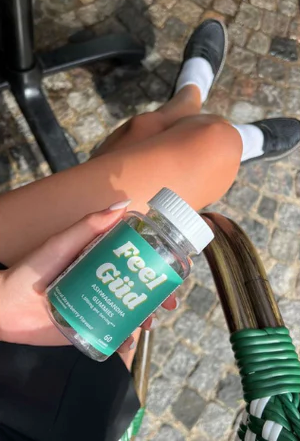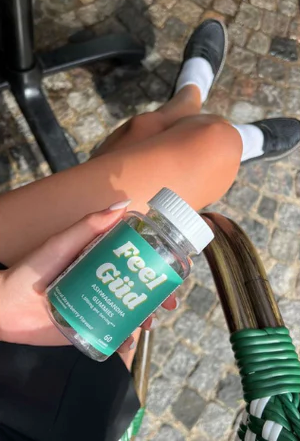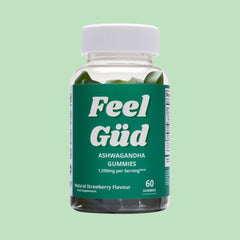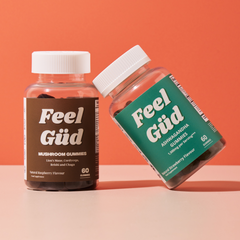

Ashwagandha Benefits for Women: Hormones, Stress & Libido Support | Feel Güd
In the world of natural wellness, Ashwagandha (Withania somnifera) stands out for its incredible adaptogenic properties. While its benefits extend to all genders, women in particular can experience transformative effects—especially when it comes to hormone balance, emotional wellbeing, and sexual health.
In this guide, we explore why Ashwagandha is such a powerful ally in women’s wellness routines, and how it might help support everything from mood to menopause.
Ashwagandha: A Multi-Faceted Herb
Before diving into the specifics for women, here’s what makes Ashwagandha so widely used:
-
Hormone Balance: Ashwagandha helps regulate the brain pathways responsible for hormone production, making it a go-to for natural hormone support—especially during perimenopause or PMS.
-
Stress Reduction: As an adaptogen, it lowers cortisol (the stress hormone), helping your body focus on producing other vital hormones and promoting emotional calm.
-
Enhanced Libido: Hormonal imbalances can dim your spark. Ashwagandha has been shown to help reignite desire by supporting hormone harmony and improving blood flow.
 Ashwagandha Benefits for Women: A Closer Look
Ashwagandha Benefits for Women: A Closer Look
1. Hormone Balance and Menopause Support
Menopause can be a rocky transition, with symptoms like hot flushes, fatigue, joint aches, and low mood. Ashwagandha has been shown to ease these symptoms naturally.
2. Stress Reduction and Emotional Wellbeing
High stress levels throw hormones out of sync. Ashwagandha works by lowering cortisol, which not only reduces feelings of overwhelm but also gives your body space to restore hormonal balance. Daily use has been associated with better mood and resilience.
3. Improved Libido and Sexual Health
Ashwagandha has been clinically linked to enhanced sexual function in women, particularly those experiencing a dip in desire. By boosting blood flow and supporting relaxation, it can help improve arousal and satisfaction.
4. Combining Ashwagandha with Key Vitamins
For an even more balanced effect, combine Ashwagandha with hormone-supportive vitamins:
-
Vitamin D helps regulate estrogen and progesterone levels. It’s essential for cycle regularity and fertility health. Many women benefit from supplements, especially in winter months.
-
Vitamin B6 plays a key role in hormone synthesis and can reduce PMS symptoms like mood swings and cramps. It’s found in foods like bananas, poultry, and leafy greens—or taken as a supplement.
Feel Güd Ashwagandha Gummies: A Simple Solution
Looking for an easy way to add Ashwagandha to your routine? Our Ashwagandha Gummies are high-strength, hormone-supportive, and genuinely tasty. Whether you’re looking to ease stress, boost your mood, or support your libido, they’re a practical (and delicious) place to start.
Conclusion
From smoother mood swings to renewed energy and libido, Ashwagandha delivers powerful support for women navigating hormonal ups and downs. It works best when taken consistently, and even better when combined with supportive nutrients like vitamins D and B6.
Ready to feel more balanced, calm, and connected to your body? Start with Ashwagandha—and see how far it can take you.
Want to learn more? Check out our blog: Does Ashwagandha Balance Hormones? for deeper insight.
tags: Ashwagandha,
Join our mailing list.
Sign up to be the first to know about our can't-miss product drops, special VIP offers & exclusive discounts, and upcoming holiday promotions.
Ashwagandha Gummies
Our ashwagandha gummies are the perfect natural supplement to add to your daily routine. Being...
£24.99
Shop NowCalm + Focus Bundle
Energy for the Day, Calm for the Night Introducing the Calm + Focus Bundle –...
£44.99
Shop Now
